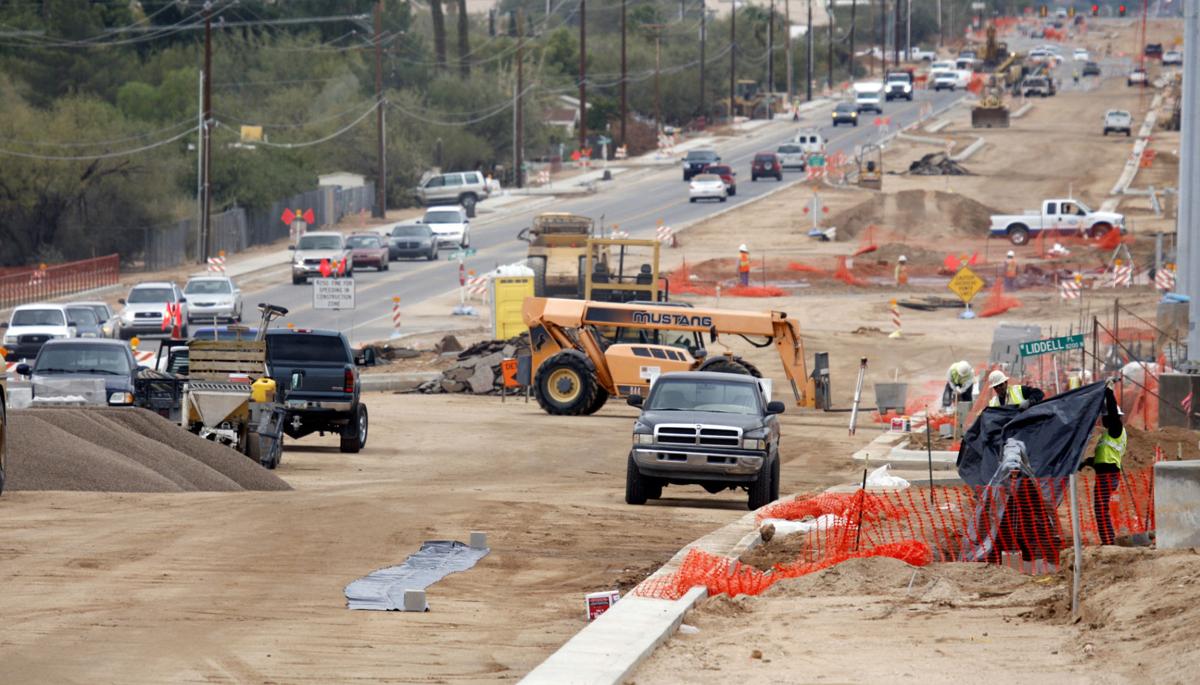The contractor hired to expand La Cañada Drive claims Pima County owes at least $5.6 million for costs incurred by construction delays.
Select Development and Construction claims the project’s design was flawed and that the county took months to respond to requests for information. As a result, construction was delayed by 132 days and the company was forced to scrap its original plans in favor of more expensive methods, it says.
The county gave Select the go-ahead in May 2012 to expand La Cañada Drive between Ina and River roads from a two-lane road to a “multi-lane major arterial roadway,” the lawsuit filed Dec. 7 in Pima County Superior Court states. The project was completed in July 2015.
The Tucson-based company is asking the court to determine how much the county owes, but the lawsuit claims the county’s changes to the work plan forced Select to incur $5.12 million in additional costs, while the extra days of work amounted to $462,000 in additional overhead.
The lawsuit also claims the county owes Select $970,000 as a final payment on the $18.7 million contract.
An attorney for Select declined to comment.
The county denies all of the claims and intends to “vigorously defend” the lawsuit, County Administrator Chuck Huckelberry wrote in a Dec. 11 memo to the county Board of Supervisors.
“The county made an extraordinary effort to retain Select Development on the project even though their progress was unsatisfactory,” Huckelberry wrote.
Select completed the La Cañada project, “but with considerable delays and citizen complaints,” Huckelberry wrote.
During the course of the project, the county terminated a $10 million contract with Select for the Magee Road improvement project in November 2014. Huckelberry said in the memo it was the first time the county had terminated a major highway improvement contract.
The company claims the county repeatedly waited months — nine months in one instance — before responding to requests for information about unidentified site conditions, third-party utility conflicts and design errors, none of which were the responsibility of Select, the lawsuit says.
As a result of delays caused by the county, the project was completed out of sequence and required several costly mobilizations, the lawsuit said. The company had to rent additional equipment in order to work simultaneously in multiple locations, the suit says.
The increased cost to install concrete curbs was one example given in the lawsuit of delays forcing costs higher. Rather than install the curbs in long stretches — as the company anticipated in its bid — the curbs were installed in small segments to accommodate traffic.
Another problem arose, the lawsuit says, when the county told the company the project needed to use Asphalt No. 2 for certain intersections and side streets, rather than the asphalt-rubber mixture called for in the contract. As a result, the company had to stop and start paving at every intersection, as well as change how the pavement was laid.
The company said it informed the county of the additional delays at regular meetings with county officials.
Select made similar complaints about project delays in June 2014 and asked the county for $3.2 million in compensation. The county denied the request, county records show.





